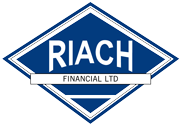Taking your next step on the property ladder can be both thrilling and daunting. Whether it is your first move since buying your initial home or you are returning to the market after many years, the process can feel overwhelming. From dealing with solicitors and estate agents to managing your mortgage and coordinating removals, there is a lot to juggle. But do not worry! This guide will help you understand the home-moving process, offering tips and insights to make your transition smoother.
Understanding Your Mortgage Options
Before you even think about putting your property on the market, it is crucial to understand your borrowing power. Here are some key considerations:
- Assess Your Equity: Determine how much equity you will have after selling your current home and paying off any associated fees. This equity will contribute to your deposit for the new property.
- Current Mortgage Deal: Check if you are tied into your existing mortgage and if there are any Early Repayment Charges (ERCs). Understanding these fees is essential for planning your next steps.
- Porting Your Mortgage: Investigate whether you can transfer your current mortgage to your new property. This could save you time and money.
- Exploring New Mortgages: If porting is not an option, you may want to shop around for a new mortgage. Getting a mortgage agreement in principle can give you a clearer picture of your budget.
Preparing Your Property to Sell
Most people sell their current home to buy a new one. Here is how to prepare:
- Get a Valuation: Contact a local estate agent to get an idea of your property’s market value. This will help you gauge the right asking price.
- Enhance Your Home’s Appeal: Tackle any unfinished DIY projects, declutter, and spruce up your outdoor spaces. First impressions matter!
- List Your Property: Once you are ready, it is time to get your home on the market with an estate agent. Make sure it is presented in the best light to attract potential buyers.
Instructing a Solicitor
Having a solicitor lined up is crucial as you prepare to sell. Here is what to do:
- Choose Wisely: If you had a good experience with your previous solicitor, reach out for a quote. If not, shop around for quotes and consider recommendations from your estate agent.
- Prepare Your Documents: Gather necessary identification, such as a recent proof of address and passport, to streamline the process.
Accepting an Offer
Once your property is on the market, offers may come in quickly or take some time. Here is what to consider:
- Buyer’s Position: Are they chain-free? Are they first-time buyers, or do they need to sell their property first? Understanding their situation can help you make an informed decision.
- Qualifying Buyers: Your estate agent can help qualify potential buyers, ensuring they have a mortgage agreement in principle and are serious about purchasing.
- Beyond the Highest Offer: Sometimes, the highest offer is not the best option. Consider the buyer’s position and the complexity of their chain.
Searching for Your New Property
This is the exciting bit. If you have accepted an offer on your property and have your mortgage agreed in principle you are in a good position to start looking for a new property. You can start your search before you have accepted an offer on your property of course:
- Start Early: You can begin your search before accepting an offer, but having an offer in place strengthens your position.
- Use Online Tools: Use property websites to explore listings in your desired area. Sign up for alerts to stay updated on new properties.
- Be Open-Minded: If your budget is £500,000, consider looking at properties slightly above that price. You might find a gem that is worth the stretch.
- Ask Questions: When viewing properties, inquire about the seller’s reasons for moving, the neighbourhood, and any renovations done since their purchase.
- Leasehold Considerations: If you are looking at leasehold properties, check the lease length and associated costs, as these can affect mortgage options.
- Commercial Proximity: If a property is near commercial premises, consult your mortgage Adviser. Not all lenders will finance such properties.
Understanding Your Mortgage Options for a New Purchase
When considering your next move on the property ladder, understanding your mortgage options is crucial. Whether you are tied into a deal with your existing lender or free to explore new opportunities, knowing your circumstances can significantly impact your decision-making process. Here is a breakdown of what you need to consider:
Porting Your Existing Mortgage
If you have an existing mortgage with an Early Repayment Charge (ERC), you may have the option to port this mortgage to your new property. Here is how it works:
- Avoiding ERCs: Porting allows you to transfer your current mortgage balance and rate to a new property, helping you avoid hefty ERCs. However, this is not guaranteed; your lender will assess your application based on their current lending criteria and your financial situation.
- Top-Up Amounts: Often, buyers need to borrow additional funds, known as a “Top Up,” to complete the purchase. For example, if you have a £200,000 mortgage at a 3% rate and need a total of £250,000 for your new home, you can port the existing £200,000 and take out an additional £50,000 at a new rate.
- Two Different Rates: Be aware that porting may result in having two different mortgage amounts with varying rates and end dates. While this can be a practical solution to avoid ERCs, it is essential to consult a mortgage Adviser to navigate this process effectively.
Switching Lenders
In some cases, it might make sense to switch lenders and redeem your existing mortgage in full, even if it incurs an ERC. A mortgage adviser can help clarify whether this is the best option based on your personal circumstances.
Taking a New Mortgage
If porting is not feasible or you prefer a fresh start, you can apply for a new mortgage with either your current lender or a different one. This process is similar to what you experienced when purchasing your first property.
Budgeting for Moving Costs
Moving home involves various costs, so it is wise to create a Budget Planner to manage your expenses effectively. Here are some costs to consider:
- Estate Agent Fees: If you choose to use an estate agent, fees typically range from 1% plus VAT upwards. Do not hesitate to negotiate these fees.
- Solicitor’s Fees: These can vary widely, starting from around £1,200, depending on the complexity of the transaction.
- Removal Costs: Obtain several quotes to find the best deal for your move.
- Valuation and Survey Fees: Some lenders offer free valuations, while others may charge based on the property value. If you opt for a Homebuyers Report or a full structural survey, factor these costs into your budget.
- Stamp Duty Land Tax (SDLT): Use online calculators to estimate your SDLT obligations.
- Packing Supplies: Do not forget to budget for boxes, bubble wrap, and other moving supplies.
Managing the Sales Process
The sales process can be stressful, especially if you are part of a property chain. Here are some tips to keep things on track:
- Stay Proactive: Do not hesitate to follow up with your solicitor or estate agent if you have not heard from them. Communication is key to keeping the process moving.
- Seek Support: At Riach Financial, we assist clients not only with mortgage applications but also throughout the entire process. We are here to answer your questions and help you understand what to expect at each stage.
Conclusion
Moving home is a significant life event filled with excitement and challenges. By understanding your mortgage options, preparing your property for sale, and navigating the buying process with confidence, you can make your next move on the property ladder a successful one. Remember, thorough preparation and informed decisions are key to a smooth transition. Happy house hunting!
YOUR PROPERTY MAY BE REPOSSESSED IF YOU DO NOT KEEP UP REPAYMENTS ON YOUR MORTGAGE.

